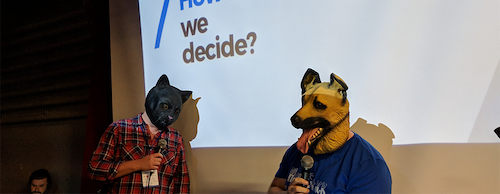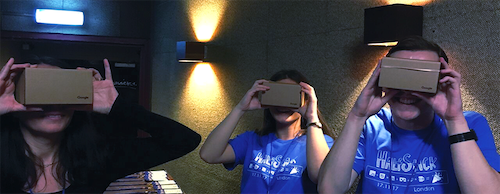Cinergy Dine-In Theater, Charlotte, North Carolina
TBD
Afterparty (includes JS Pub Quiz!)

On hiatus.
Loading tickets...


Sponsoring HalfStack
Our conferences wouldn't be possible without the generous support of our sponsors.
Interested in becoming one?
